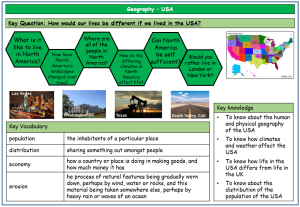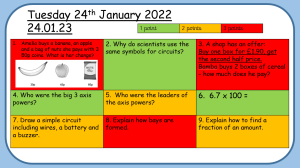Pupils have the opportunity to work independently and collaboratively to assess their understanding of the curriculum. They do this both during lessons and retrospectively using prior work and knowledge organisers to support them.
At Huntingdon Academy, our wider curriculum of foundation subjects is crafted in a way that allows assessment to be used to inform teaching and provide support to pupils in a purposeful and manageable way. It is used in a way that allows sequences to be developed that ensures knowledge and skills are revisited and developed over time. Assessment for learning in the wider curriculum runs through every subject as a golden thread and takes place both during live lessons and at various points of the term to ensure knowledge and skills are embedded in the pupils’ learning.
The purpose of assessing the wider curriculum is to ensure that we know the children are knowing more and remembering more.
Knowledge Organisers are shared with the children at the beginning of every topic/subject and are present during every lesson. They include the key knowledge and skills and questions that encourage the pupils to think deeply about their learning. Pupil voice and oracy are used to assess the pupils’ understanding live in lessons and retrospectively throughout the year.

Low-stakes quizzes and challenges are embedded into lessons and at various points throughout the school year, enabling pupils to retrieve information learned throughout their schooling. In the mornings, children are encouraged to complete a challenge which includes questions from across the curriculum from their current year group and prior learning.

The application of skills and knowledge can be applied in a cross-curricular way to assess the pupils’ understanding of specific skills. Providing pupils with concepts in different contexts means it is more likely to be remembered. Tasks during lessons are specifically crafted to ensure pupils have this opportunity of application. Mastery days occur at the end of every half term which provide pupils with the opportunity to take on a challenge in which they will need to apply the knowledge and skills they have learned that term to complete an exciting challenge.
Our feedback policy focuses heavily on live marking and instant feedback to children to ensure misconceptions are identified quickly and concisely and that feedback can be acted upon immediately. We employ a method of dialogic marking, meaning pupils have the opportunity to discuss their work with a teacher, which ensures the marking is more impactful.
Pupils have the opportunity to work independently and collaboratively to assess their understanding of the curriculum. They do this both during lessons and retrospectively using prior work and knowledge organisers to support them.